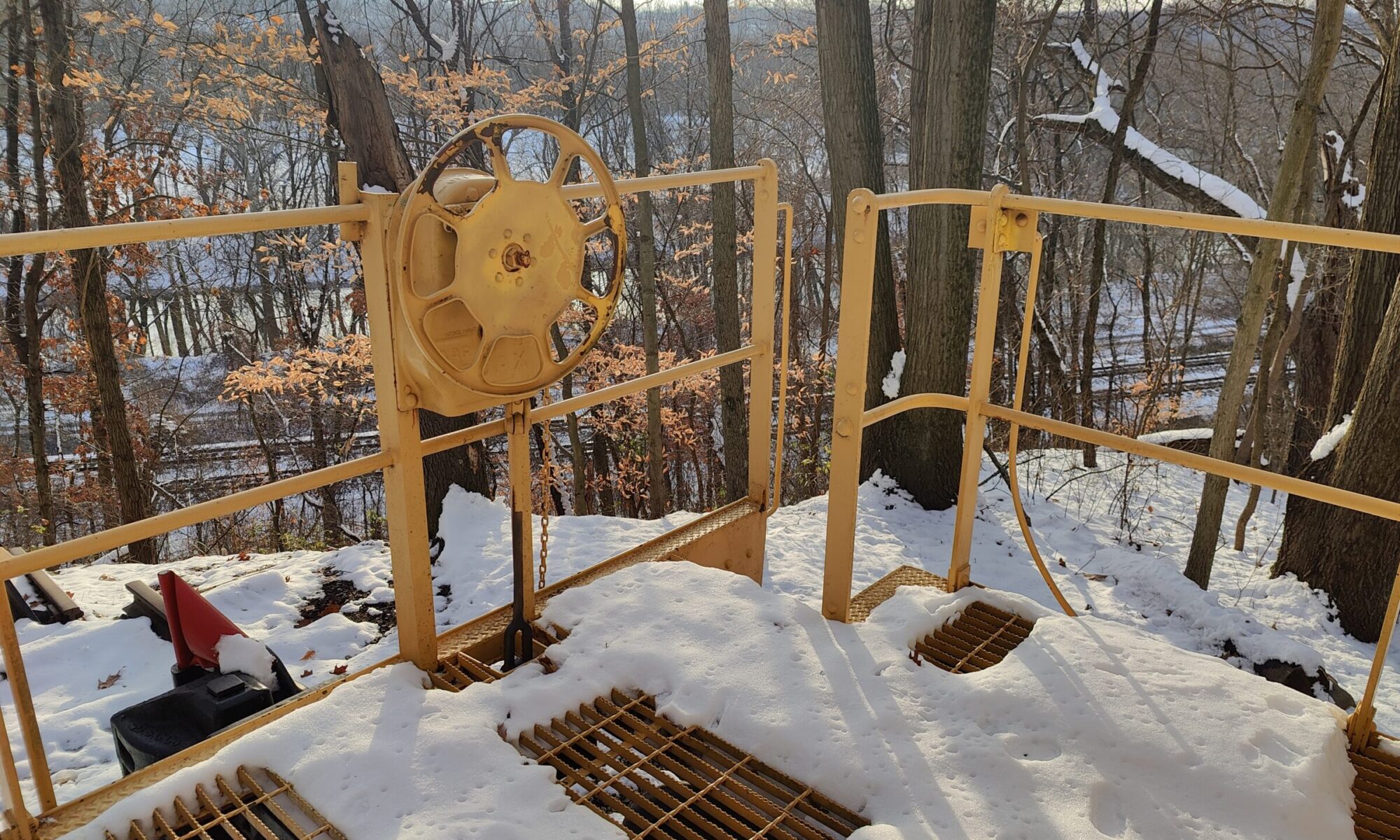MacKinlay Cantor
The rails that run by Honey Creek are eaten up with rust,
And no one walks the grassy bed hidden in the roses’ dust;
But yet at night a slender ghost may stalk the quiet sky—
And bats will shiver as they see Kate Shelley going by.
Kate Shelley from a quiet house, Kate Shelley in the storm . . .
She took a lantern in her hand to keep her spirit warm;
The clouds came up and thundered haste and Honey Creek was foam;
The waters laughed with blackened breath below Kate Shelley’s home.
“O daughter, go you to the door. I heard a whistle call,
Crying within the valley dark that shadows over all.
Your father was a section man; you are the seed he sowed
So listen, listen in the storm and guard the iron road.”
Her father was a section man; she knew the mighty wheels
That ground along the bottom land amid the tempest’s heels.
She listened in the howling dark—and heard a sundered scream
When ninety tons of steel went down into the boiling stream.
“My father was a section man—he reared me for the road . . .”
She climbed the gashed and sullen grade while oaken saplings bowed;
She prayed to gods of spade and pick, she prayed to tie and rail . . .
The river bridge was like a priest in rainy vestments pale.
The midnight coaches from the west plunged in the dripping rain;
West of Moingona ties were sound—east was a broken train—
(East in the bile of Honey Creek in one drowned, creaking curl,
Lay ninety tons of twisted steel) between them was a girl.
Under the river bridge was death—black fathoms frothing down.
Beyond Moingona sang the train on to a lonely town;
The engineer swayed in his cab, he could not see ahead:
“Two hours more . . . I leave the run and get me home to bed.”
Two hours more . . . The whistle whined shrill in the driven rain.
Two hours more . . . (A broken span, a ghost where there was a train).
Across the river bridge a girl came creeping on the ties:
The wind wiped out her lantern flame, but still she had her eyes.
And still she had her Irish soul, and still she had her heart!
The spikes cut furrows in her skin and tore her flesh apart.
Two yards beneath, the river’s tongue clove at the shaking span . . .
A wraith beside her urged her on: “I was a section man. . . ”
Down in a pocket of the hills Moingona hid its head—
And men with muscles pillowed down, slumbering as the dead.
One light shone thinly through the night under the battled din.
A bleeding hand clutched at the door—a torn shape staggered in.
None but the silver mice that prowl like watchmen till the dawn
Remember now her broken words, for all the men are gone.
None but the station mice that sleep beneath the pounding brass
Could tell you what Kate Shelley said, and what had come to pass.
Nothing but wheels which tightened down when crimson lanterns waved;
No song of thanks, no valiant yell: “God! and the train is saved!”
Nothing but brandy held to lips by someone of the crew . . .
“I’ll ride the cab,” she said, “and show just where the boys went through.”
She rode the cab and guided them. (The anxious whistle bawled.)
She rode in torn and bloody rags the ties where she had crawled.
And if the station mice were there they saw the sundered heap,
And watched the rescue party toil before Kate went to sleep.
And nine and forty years are gone; the trains no longer come
Along the crest of Honey Creek before Kate Shelley’s home.
Oh, there were songs for other years when all the road was hers—
And there were men to bless her name, and gold to fill her purse.
But if you go to Honey Creek in some dark summer storm,
Be sure you take a lantern flame to keep your spirit warm.
For there will be a phantom train, and foggy whistle cries—
And in the lightning flare you’ll see Kate Shelley on the ties.
